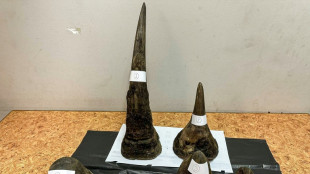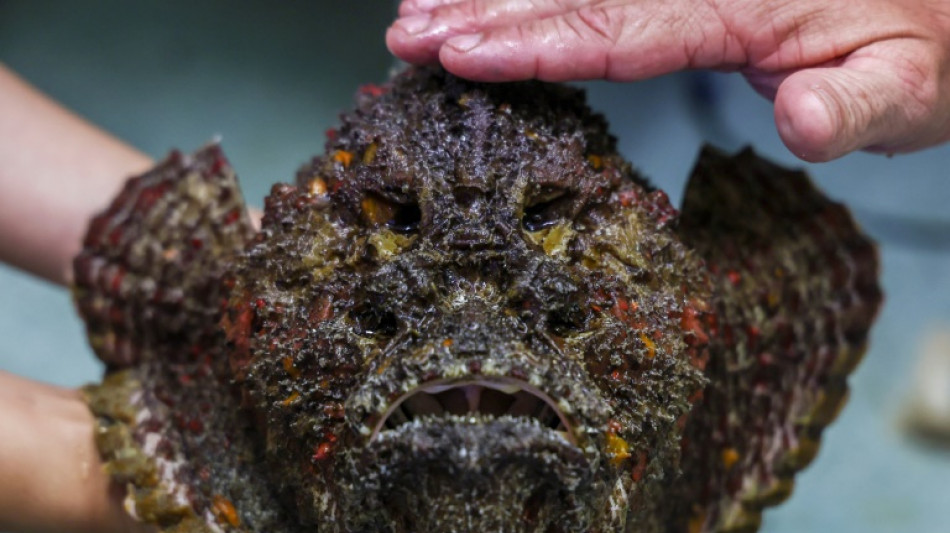
-
 US commerce chief admits Epstein Island lunch but denies closer ties
US commerce chief admits Epstein Island lunch but denies closer ties
-
Mayor of Ecuador's biggest city arrested for money laundering

-
 Farhan, spinners lead Pakistan to easy USA win in T20 World Cup
Farhan, spinners lead Pakistan to easy USA win in T20 World Cup
-
Stocks mixed as muted US retail sales spur caution
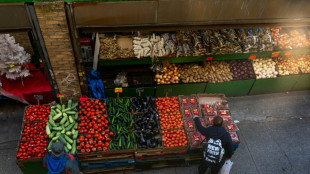
-
 Macron wants more EU joint borrowing: Could it happen?
Macron wants more EU joint borrowing: Could it happen?
-
Shiffrin flops at Winter Olympics as helmet row simmers

-
 No excuses for Shiffrin after Olympic team combined flop
No excuses for Shiffrin after Olympic team combined flop
-
Pool on wheels brings swim lessons to rural France

-
 Europe's Ariane 6 to launch Amazon constellation satellites into orbit
Europe's Ariane 6 to launch Amazon constellation satellites into orbit
-
Could the digital euro get a green light in 2026?

-
 Spain's Telefonica sells Chile unit in Latin America pullout
Spain's Telefonica sells Chile unit in Latin America pullout
-
'We've lost everything': Colombia floods kill 22
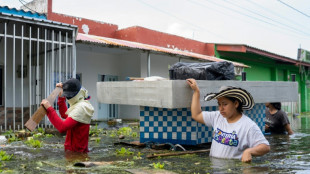
-
 Farhan propels Pakistan to 190-9 against USA in T20 World Cup
Farhan propels Pakistan to 190-9 against USA in T20 World Cup
-
US to scrap cornerstone of climate regulation this week

-
 Nepal call for India, England, Australia to play in Kathmandu
Nepal call for India, England, Australia to play in Kathmandu
-
Stocks rise but lacklustre US retail sales spur caution
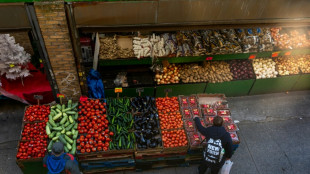
-
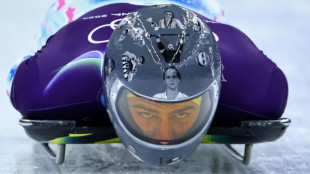 Olympic chiefs let Ukrainian athlete wear black armband at Olympics after helmet ban
Olympic chiefs let Ukrainian athlete wear black armband at Olympics after helmet ban
-
French ice dancers poised for Winter Olympics gold amid turmoil

-
 Norway's Ruud wins error-strewn Olympic freeski slopestyle
Norway's Ruud wins error-strewn Olympic freeski slopestyle
-
More Olympic pain for Shiffrin as Austria win team combined

-
 Itoje returns to captain England for Scotland Six Nations clash
Itoje returns to captain England for Scotland Six Nations clash
-
Sahara celebrates desert cultures at Chad festival

-
 US retail sales flat in December as consumers pull back
US retail sales flat in December as consumers pull back
-
Bumper potato harvests spell crisis for European farmers

-
 Bangladesh's PM hopeful Rahman warns of 'huge' challenges ahead
Bangladesh's PM hopeful Rahman warns of 'huge' challenges ahead
-
Guardiola seeks solution to Man City's second half struggles

-
 Shock on Senegalese campus after student dies during police clashes
Shock on Senegalese campus after student dies during police clashes
-
US vice president Vance on peace bid in Azerbaijan after Armenia visit

-
 'Everything is destroyed': Ukrainian power plant in ruins after Russian strike
'Everything is destroyed': Ukrainian power plant in ruins after Russian strike
-
Shiffrin misses out on Olympic combined medal as Austria win

-
 EU lawmakers back plans for digital euro
EU lawmakers back plans for digital euro
-
Starmer says UK govt 'united', presses on amid Epstein fallout

-
 Olympic chiefs offer repairs after medals break
Olympic chiefs offer repairs after medals break
-
Moscow chokes Telegram as it pushes state-backed rival app

-
 ArcelorMittal confirms long-stalled French steel plant revamp
ArcelorMittal confirms long-stalled French steel plant revamp
-
New Zealand set new T20 World Cup record partnership to crush UAE

-
 Norway's Ruud wins Olympic freeski slopestyle gold after error-strewn event
Norway's Ruud wins Olympic freeski slopestyle gold after error-strewn event
-
USA's Johnson gets new gold medal after Olympic downhill award broke

-
 Von Allmen aims for third gold in Olympic super-G
Von Allmen aims for third gold in Olympic super-G
-
Liverpool need 'perfection' to reach Champions League, admits Slot

-
 Spotify says active users up 11 percent in fourth quarter to 751 mn
Spotify says active users up 11 percent in fourth quarter to 751 mn
-
AstraZeneca profit jumps as cancer drug sales grow

-
 Waseem's 66 enables UAE to post 173-6 against New Zealand
Waseem's 66 enables UAE to post 173-6 against New Zealand
-
Stocks mostly rise tracking tech, earnings
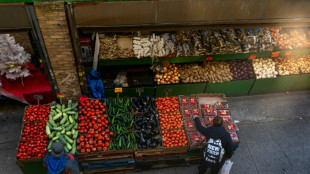
-
 Say cheese! 'Wallace & Gromit' expo puts kids into motion
Say cheese! 'Wallace & Gromit' expo puts kids into motion
-
BP profits slide awaiting new CEO

-
 USA's Johnson sets up Shiffrin for tilt at Olympic combined gold
USA's Johnson sets up Shiffrin for tilt at Olympic combined gold
-
Trump tariffs hurt French wine and spirits exports

-
 Bangladesh police deploy to guard 'risky' polling centres
Bangladesh police deploy to guard 'risky' polling centres
-
OpenAI starts testing ads in ChatGPT


Milking venom from Australia's deadly marine animals
Imagine feeling like an elephant is sitting on your chest, you can't breathe, there's a sense of impending doom and the pain is so intense you want to die.
You've just been stung by a tiny Irukandji jellyfish.
While you are unlikely to die, toxicologist Jamie Seymour of James Cook University in Australia says you'll wish you had.
He should know -- he's been stung 11 times.
But Seymour's job is riskier than most: milking sea creatures of their venom to create life-saving antivenoms.
Dozens of Irukandji jellyfish, some no bigger than a sesame seed, float in tanks inside a metal shed kept by the university in the state of Queensland.
In another tank, there are the most venomous fish in the world: the stonefish.
If its spines pierce your skin, the pain will cause you to lose consciousness and the area around the wound will turn black and die.
The stonefish's venom is powerful enough to kill humans, but there have been no recorded fatalities in Australia. Seymour is also among those who have survived its sting.
His team is studying Australia's deadliest marine animals in a bid to understand them and keep people safe.
"Australia is without a doubt the most venomous continent in the world," Seymour told AFP.
"When you talk to people, especially Americans, they're surprised that we don't all die at birth."
As Seymour moves around the tanks, he points out other deadly animals, including a box jellyfish which can kill a person within 10 minutes with its poison.
- Stings and bites -
Despite the countless venomous animals across Australia, fatalities are relatively rare.
The latest official data show that between 2001 and 2017, there were an average of 32 animal-related deaths a year, with horses and cows the biggest killers.
Since 1883, there have been only two recorded deaths from Irukandji jellyfish and about 70 deaths from box jellyfish.
By comparison, there were about 4,700 deaths from drug, alcohol and vehicle-related incidents in Australia in 2022 alone, according to government data.
"So, the chances of you being stung by an animal in Australia -- or bitten -- is reasonable, but the chances of dying very small," Seymour said.
His facility is the only one that milks venom from these deadly marine animals and turns it into antivenom.
For the deadly box jellyfish, that process is tricky. Researchers must remove their tentacles, freeze-dry them and collect the venom once it solidifies.
There's no antivenom for the Irukandji jellyfish.
Instead, doctors treat each symptom as it appears. If you get rapid medical advice, the chance of survival is high.
For the stonefish, the venom extraction process is more challenging.
Researchers insert a syringe into a live fish's venom glands, holding it with a towel while they withdraw a thimble full of the deadly fluid.
They then send the venom to a facility in the state of Victoria which processes it into life-saving antivenom.
First, the facility staff inject a small amount of venom over six months into an animal, such as a horse, which produces natural antibodies.
The animal's plasma is later removed and the antibodies are extracted, purified and reduced into an antivenom for humans.
- Deadly jellies -
Antivenoms are shipped to hospitals around Australia and some Pacific islands, where they can be administered if someone is stung or bitten by an animal.
"We have some of the best antivenoms in the world, there is no doubt about that," Seymour told AFP, noting the time and effort put into producing the serums in Australia.
And antivenom may be increasingly needed, as climate change can raise the risk of a sting, according to scientists.
About 60 years ago, the Irukandji jellyfish stinging season in Australia was in November and December.
With ocean temperatures staying warmer for longer, now the jellyfish can linger as late as March.
Warming oceans are also pushing these deadly sea jellies -- and other marine animals -- further south along the Australian coast.
Seymour's students have found that temperature changes can also alter the toxicity of venom.
"For example, if I make an antivenom for an animal at 20 degrees and I get bitten by an animal that lives in the wild at 30 degrees, that antivenom isn't going to work," he said.
Studies have also shown that venom from stinging creatures could be used to treat myriad health conditions, including one in which rheumatoid arthritis was effectively cured in mice in two weeks.
But this area of research remains largely unfunded, and Seymour says his work continues.
"When you think of the venom, think of it like a vegetable stew. There's a whole heap of different components that are in there," he said.
"What we've been trying to do is pull these things apart and work out what's going on."
O.Norris--AMWN
